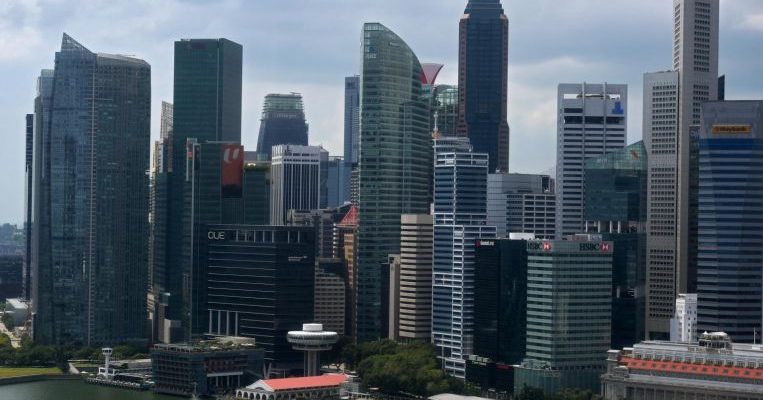
SINGAPORE – Fitch Solutions Macro Research said 2019 will be a challenging year for the banking sector given that global outlook risks may spill over to the small and open economy of Singapore.
In a report on Singapore bank loan growth, the market research firm said bank earnings will come under mild pressure as interest rates stabilise due to the US Federal Reserve’s (US Fed) dovish pivot, combined with the re-escalation of US-China trade tensions.
It maintains its forecast, first made on Jan 29, for Singapore bank loans to grow 0.5 per cent in 2019, down from 5.6 per cent and 3 per cent in 2017 and 2018 respectively.
Fitch expects the re-escalation of US-China trade tensions to negatively impact an open Singapore economy and its banking sector.
China accounts for 13 per cent of Singapore’s total trade, and exports – a key driver of growth in China – have been volatile in the first part of 2019 against a backdrop of ongoing trade discussions between Beijing and Washington.
China’s exports shrank 20.7 per cent year on year in February before rebounding 13.8 per cent in March and contracting again by 4.7 per cent in April, with the three-month moving average being in a downtrend since February 2018.
In Singapore, growth in non-oil domestic exports (Nodx) has fallen to -11.7 per cent year on year in March, having been in a continuous decline since 2017 and weighing on the economy.
Fitch said Singapore may also suffer from reduced offshore Chinese investments as its economy slows, as evidenced by the exchange rate of the Chinese yuan against the Singapore dollar which is correlated to the loan growth of businesses in Singapore.
Fitch also expects a stable interest rate environment to cap local banks’ earnings as they see reduced prospects to increase their interest margins.
It predicts that the US Fed will hold any interest rate hikes, forecasting one 25-basis-point rate hike between now and the end of 2020, most likely by end 2019.
Consequently, Singapore, which does not directly control its interest rates and depends largely on foreign rates, will follow a similar trend to at least remain anchored.
While stable interest rates may be a boon for the housing sector, macro-prudential measures such as the increase in additional buyer’s stamp duty rates and loan-to-value limits set in July 2018 will continue to curb loan growth, Fitch said.
